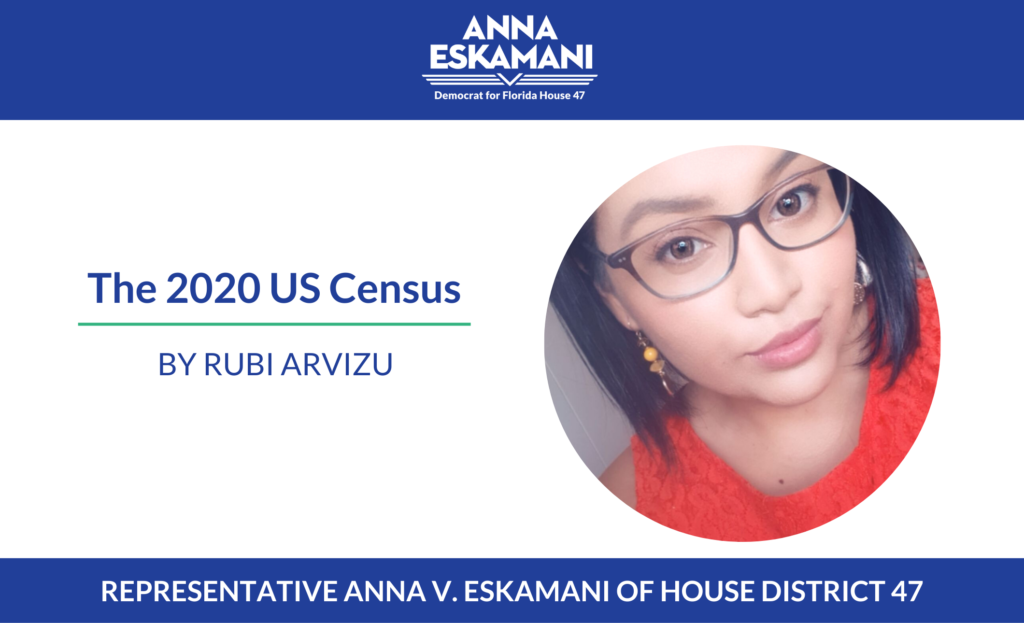Rubi is Team Anna intern and a law student at Barry University School of Law. During her time in law school, Rubi has devoted her work to the Immigration Clinic, and has served as a student representative for a year, whose clients include asylum seekers. In addition to helping others, Rubi loves trying new foods and dancing like nobody’s watching. She also has aspirations of being a judge!
As the 2020 census continues collecting responses, a majority of Americans remain uninformed and skeptical about the importance of the census. The Pew Research Center surveyed about 3,500 U.S. adults at the beginning of this year and found that while many have heard of the census, they did not know any key details concerning what the census asks or how to participate. Even for the Americans familiar with the process, the census is still approached with uncertainty due to the lack of trust in government and fear their answers could be used against them.
Here, we address and provide clarity to some of those questions.
What is the census and why is it important?
The census is mandated by the Constitution and conducted by the U.S. Census Bureau every ten years. The census counts the population in the United States and U.S. territories. The census determines how congressional house seats and other districts are drawn, and the distribution of federal dollars. Those federal dollars include medical assistance programs, highway planning and construction, Pell grants, social safety net spending, and more. Since the census is the primary source of data for these resources, it is important that Americans participate to ensure an accurate count on demographics and the government may allocate these resources accordingly.
Is there a citizenship question?
There is no citizenship question on the 2020 Census. The Trump administration wanted to include a question on the census inquiring about people’s legal status. However, this question would deter many immigrants from filling out the census. The census has historically been known to undercount many minority groups within the nation and including a citizenship question could make it worse. While information provided in the Census is confidential, many immigrants fear that providing their legal status makes them vulnerable to deportation. It was estimated that about 6.5 million people might not be counted if the citizenship question is included, affecting many of the House seats for states such as New York, California, and Texas.
The 2020 Census and COVID-19
The 2020 Census is happening now. You can complete your questionnaire online, by phone, or by mail.
- Some households received a paper questionnaire, or the census form, by April 1st.
- You may also visit my2020census.gov if you wish to respond online. Keep in mind that if you are responding online, you must complete the form in one sitting.
- You could also call 844-330-2020 to complete the questionnaire by phone. Both online and by phone, up to 13 different languages of support are offered. The questions are about yourself and everyone who is living with you. The following link provides you examples of the questions asked on the form: https://2020census.gov/en/about-questions.html.
The federal law requires that all counts be completed by December 31st. Many states are currently petitioning to push the date out further due to the ongoing pandemic, but this date has yet to change.
Due to COVID-19, it is now more important than ever to become involved and fill out the census. The census is the primary source of data the government uses to allocate resources and right now we need those resources more than ever. Be part of the 2020 census and make sure you have a voice in how federal dollars are spent!
Resources:
https://time.com/5813685/census-day-2020/
https://www.nytimes.com/2019/04/23/us/politics/supreme-court-census-citizenship.html
https://www.nytimes.com/2019/07/02/us/citizenship-question-census.html

